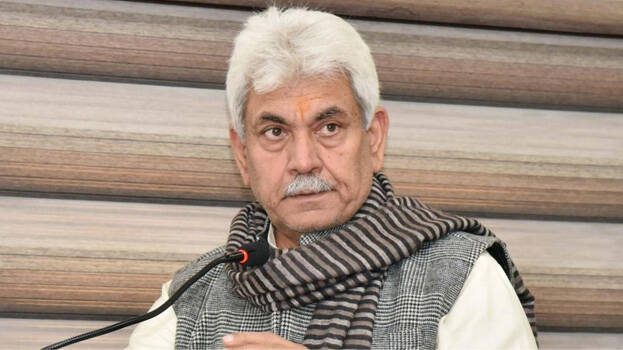The Kashmir valley may be troubled today, owing to Pakistan-sponsored terrorism in the Indian Union Territory. However, Kashmir is the representative of rich Sanskrit and is believed to be named after Kashyapa Rishi, one of the Saptarishis (seven ancient sages) mentioned in the Rigveda. Kashyapa also finds mention in several Sanskrit texts and Religious books such as the Puranas and the two main Hindu epics- Ramayana and Mahabharata.
In line with Kashmir’s Sanskrit heritage, Lt. Governor of the Union Territory, Manoj Sinha, has announced that Jammu & Kashmir are promoting the ancient language based on recommendations made by the New Education Policy. He made this announcement after laying the foundation stone for the new building of Chudamani Sanskrit Sansthan at Basohli in the Union Territory’s Kathua district.
Read More: Fifth August: The Days Jammu-Kashmir, Uttar Pradesh and the rest of India changed forever
Sinha said, “It is our collective responsibility to revive the glory of the Sanskrit language. We need to create opportunities for preservation and promotion of our civilization values.” The Lt. Governor added, “Along with five official languages, the Jammu and Kashmir administration is trying to promote the Sanskrit language according to the recommendations of the New Education Policy.”
Sinha also underscored the importance of Sanskrit by saying that the ancient language has not only united different regions of the country but has also created a close relationship between teachers and their disciples.
Sinha added, “The foundation stone laying of the new building of Chudamani Sanskrit Sansthan is a historic moment. Pandit Uttam Chand Pathak Shastri had done great and noble work in promoting Sanskrit language, cultural, and heritage values. Sanskrit has been the only language of our country which has not only united different regions but also created a close relationship between Guru and disciples. The values of the Sanskrit language were also recognised by great personalities like Albert Einstein, Oppenheimer, and Max Muller.”
Giving a brief idea about how the ancient language can be promoted, the Jammu & Kashmir Lt. Governor also said, “It should be our endeavour that Sanskrit is taught in schools according to the modern requirements. Wisdom in Sanskrit scriptures can help today’s generation while dealing with the emerging challenges.”
It is a delightful proposal on Sinha’s part to place the promotion of the Sanskrit language at the centre of Jammu & Kashmir’s priorities. The fact remains that Kashmir has always been a land of knowledge and learning, and its ancient glory ought to be revived.
In fact, in some Puranas Kashyapa Rishi is said to have drained the Kashmir valley to make it inhabitable. By ‘draining’ the valley, the ancient sage rescued Kashmir from an era of darkness and ignorance. This is indicative of a culture of teaching and learning at the highest level to make a prosperous civilisation out of Kashmir.
Yet some other sources state that Kashyapa rishi reclaimed the land described as Kashmir from a vast lake, based his school in the valley and therefore Kashmir got named after Kashyapa Rishi.
Kashmir’s origins and proximity to Kashyapa Rishi also explain why there was no non-Sanskrit account of the region till the 17th century. In the ancient and medieval era, Sanskrit was the dominant language of Kashmir and the Sanskrit-origin names of several places in Kashmir bear testimony to the valley’s rich Sanskrit heritage.
It was only due to mischief by Pakistan Army and ISI, and their ‘bleed India through a thousand cuts’ policy that Kashmir was deprived of its cultural heritage. The Pakistani Deep State may have actively replaced the sound of Sanskrit chants with the echo of guns and violence in the valley, with the Union Territory administration’s intent to promote Sanskrit, Kashmir is bound to reverberate with Sanskrit chants all over again.
